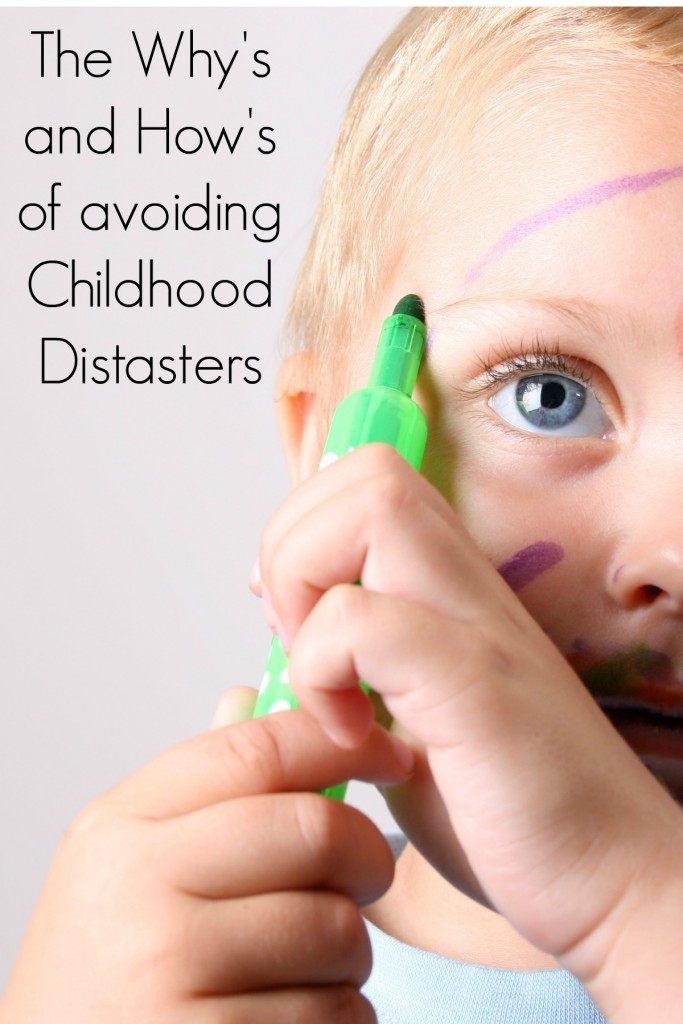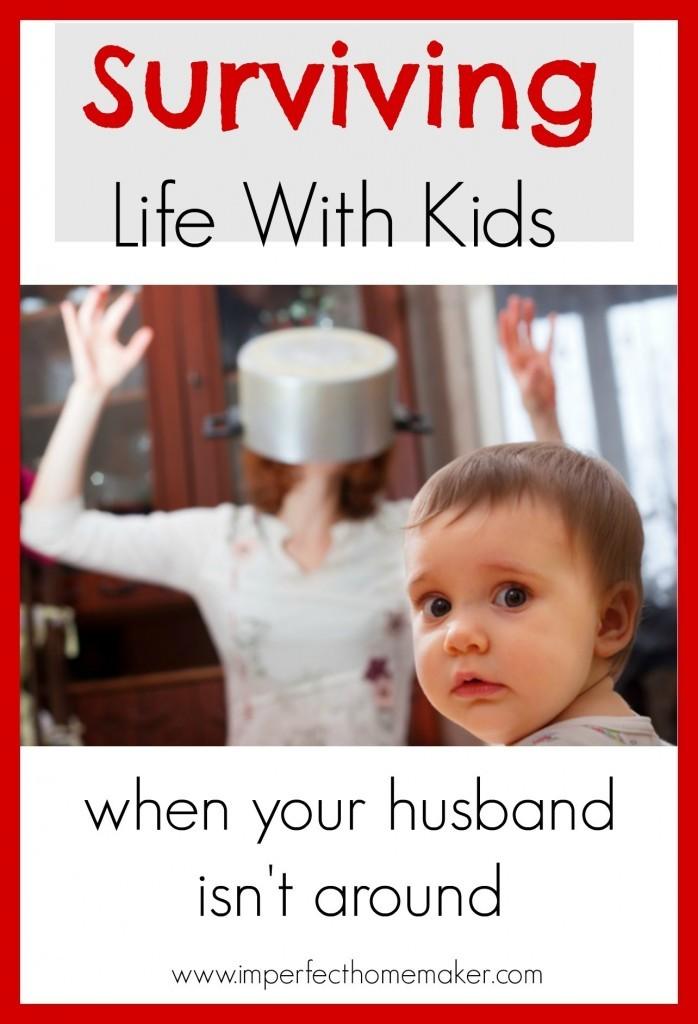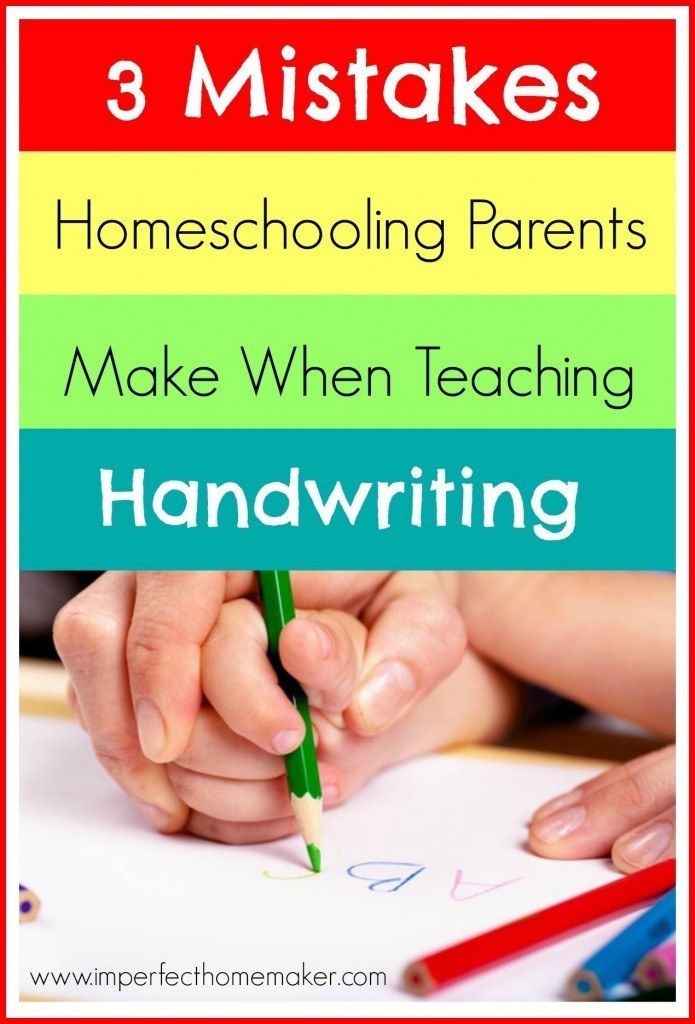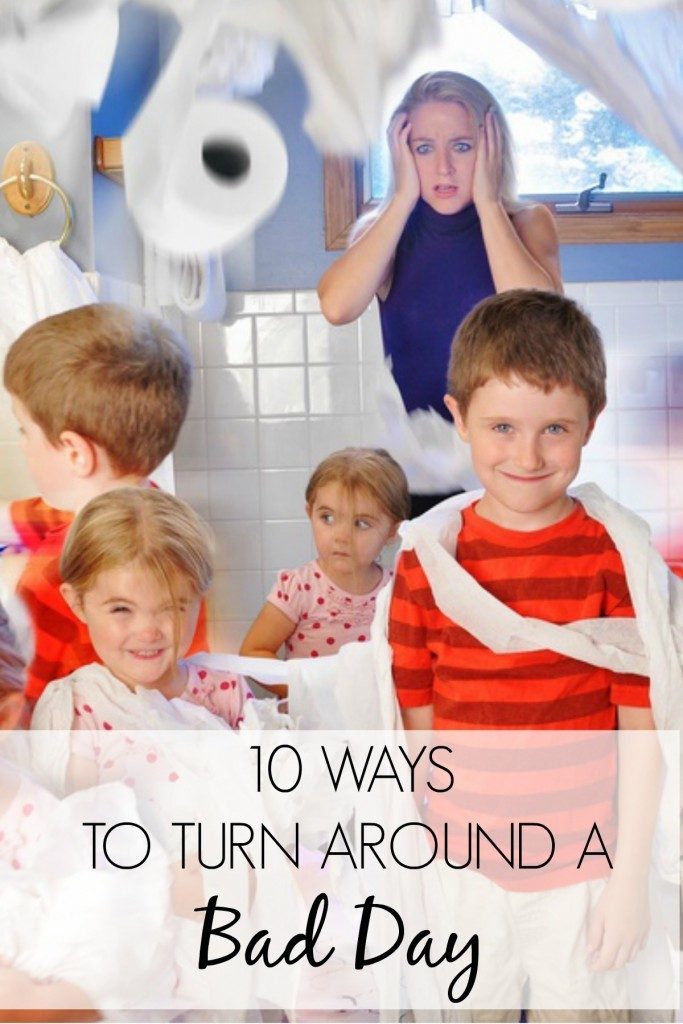Do you know what the rest of that verse says, sweet mama?
…a child left to himself bringeth his mother to shame. (Proverbs 29:15)
I've always had the idea that this would be a child who rebelled in his teen years or as a young adult — a child who chooses the wrong friends and gets into very obviously shameful things like drugs or immorality. I'm sure those scenarios are a big part of what that verse is talking about. When you don't intentionally train your children to do right you will have a lot of heartache when they are older.
But I'm learning that this verse very much applies to the little years too.
If you are distracted, your child will find all manner of ways to bring you to shame. Not only can they destroy your clean house in a matter of minutes, they can in turn wreak havoc on your disposition and you will end up ashamed at the way you reacted to their childish antics.
Although I am aware that young children need constant (and I mean constant!) supervision, I am definitely not perfect. I have improved greatly in this area of motherhood, but I gave into the temptation of distraction this morning.
I was in the middle of some computer work when the kids started getting up. I wanted to get to a good stopping place and they were quietly eating breakfast so I stayed at the computer and tried to finish up.
The problem was that one of my children wasn't actually eating his usual, approved breakfast of fruit and yogurt.
He was making himself a protein shake complete with milk, protein powder, cheese, and apple butter. (What in the world?)
And it was a mess.
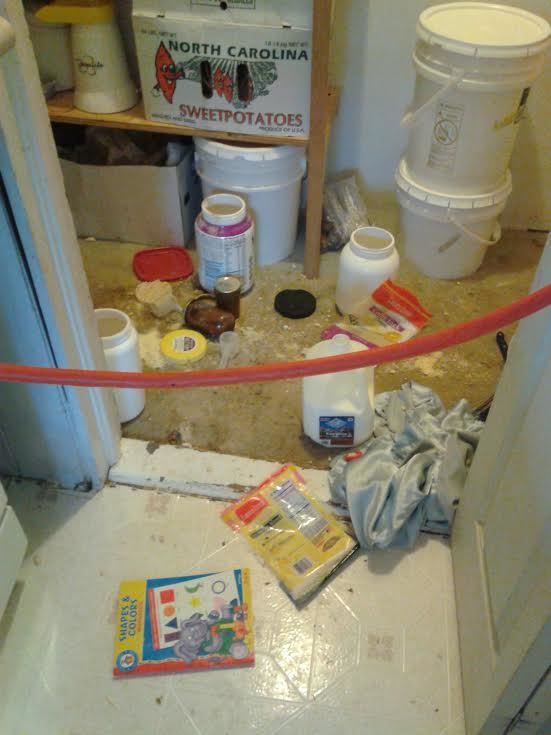
When I discovered his breakfast I admit I was not exactly happy.
I could feel myself getting worked up, so I sent us both to our rooms before I said something I would regret.
I wanted time to calm down before I dealt with the issue because I knew I would not think rationally if I dealt with it at that moment.
My feelings were a mix of irritation that he would mess with ingredients he knows he shouldn't and frustration at myself for allowing this to happen at all.
Although he was at fault since he knew he wasn't even allowed in the pantry, I was at fault as well for being a distracted mom.
And it brought me to shame.
I was ashamed because it shouldn't have happened. I was ashamed because I did not react with the gentleness that my children need.
So what's a mom to do when her children left to themselves bring their mother to shame?
I see that we have 3 choices in that instance, and only one of them is the right one.
1. We can feel guilty.
But here's the thing. Sometimes these incidents should have been avoided. Clear instructions have been given and the child did not follow them. As mothers, we can't micromanage every area of our child's life. They will never learn personal responsibility that way and we will drive ourselves crazy too.
And if the child's antics should have been avoided had we not been distracted, what good is beating ourselves up about it going to do (other than make our already sour mood even darker?)
2. We can blame the child.
He's been told what to do/what not to do and he didn't do it!
Yes mama, that's true. But he's a child. He messes up. He forgets. He willfully disobeys. (Hmm…that sounds a lot like us adults, doesn't it? Why are we surprised when our children mess up too?)
So maybe your child disobeyed and it created a big mess. That simply means it's time for some more teaching and training and maybe some rational discipline. Stewing over how disobedient your child is only makes you feel angry at him, and it definitely doesn't fix the problem.
3. We can use it as a wake up call.
This is where you use that “mom guilt” for good. Sometimes when we feel guilty, it's because we know we really did mess things up. (When you're done with this post, go back and read this post.)
But instead of pouting about what a failure we are, we should simply get up and change what needs to be changed.
{Listen to me, I completely understand that your kids will sometimes get into mischief even when you're being the most diligent, undistracted mom in the world. (A mom's gotta use the bathroom sometime, right? And kids are super fast!) This is not about making you feel like it's your fault every single time your child makes a mess. I hope I've made that clear enough by what I've already said.}
But I want to share some practical tips for trying to avoid those situations as much as possible. (Because…let's be honest…having Sharpie drawings all over the couch never puts you in a good mood.)
Keep small children with you all day.
When children are very young, they are explorers. Everything is a new adventure to them. They are not trying to be destructive, but they are. They see how pretty the crayon looks on the paper; they just have to find out what it looks like on the wall. And if you're out of the room that's exactly what they will do. You're going to have to make sure they stay in your sight all day long or something unfortunate is going to happen.
Give older children limited time away from your eyes, gradually adding more as they mature.
The older children get, the more they learn what is appropriate and what is not. But that doesn't stop them from being curious. (And sometimes the things they are curious about are very…um…surprising. I could tell you some stories.) So when they are in their room alone for quiet time, make sure you have…
…constant awareness of where they are and what they're doing.
You really do have to have eyes in the back of your head! Some moms are better at this than others, but we can all get better with practice. We have to make it a habit to be constantly checking on them.
Make sure they know where they're supposed to be and what they're supposed to be doing.
If you've got a phone call to make, don't just shut your door and hope for the best. Make a plan ahead of time. Get toddlers and preschoolers set up with an independent activity that will keep them occupied productively. Give your older children a specific place to be with a specific thing to do. I prefer to put them in a room with a door that shuts and tell them they may not come out until I come get them when I'm done on the phone.
Keep obviously damaging or dangerous objects inaccessible to them.
I know, I know. Toddlers will still find a way to climb to the highest shelf to find the scissors. But you should at least try. At our house markers, scissors, and other craft supplies stay in a locked cabinet. It's not a pretty sight if they have free access to them. Things that could be dangerous (like medicine) are also in a locked cabinet.
Don't let them get bored.
Children don't like to be bored, so they will get…um…very…creative. (Again, I could tell you stories.)
If they're wandering around aimlessly, it's time to check and make sure all their chores are done. If their work is done and you are going to let them have free time, they should be able to tell you specifically what they are going to do. “Play” can mean a lot of things to a child, but “color a picture”, “read a book”, or “play dress up” are much more definitive and will keep them from exercising their “creative” skills so much. (I'm not bashing creativity, by the way. It just needs to be channeled into something more like making a fort than decorating their walls with blueberry juice. — Like I said, I can tell you stories. 🙂 )
So there you have it, mama – the how and why of being un-distracted and vigilant when it comes to mothering your children.
Let's work to create the good habit of awareness even amongst the work we have to get done so that our children are not left to themselves.
